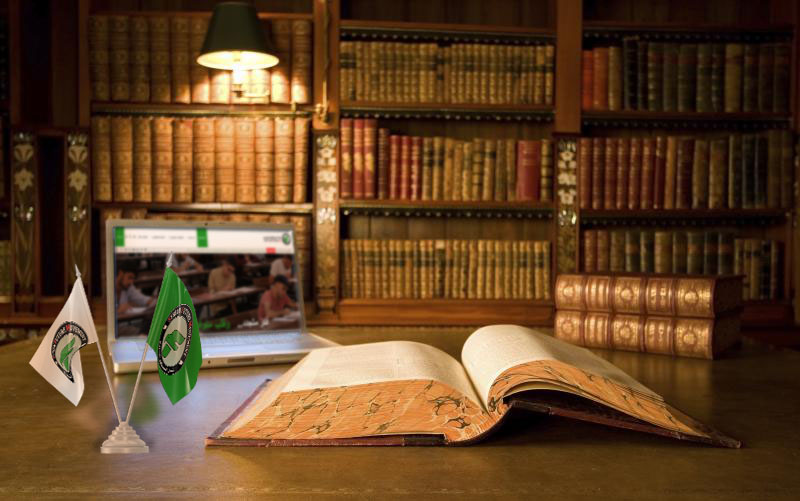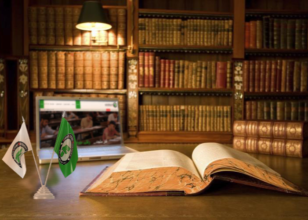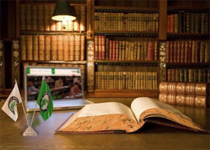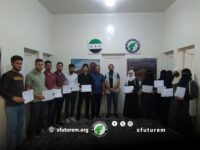Social Sciences: A Syrian Need

Introduction:
Science is a broad and diverse field that aims to understand the world around us. It can be divided into several major branches, each with its own areas of focus and study.
The traditional division of sciences is into three main categories:
1. Natural Sciences: Concerned with studying natural phenomena and the laws governing them. This includes:
- A. Physics: Studies matter, energy, and the interactions between them.
- B. Chemistry: Studies matter, its composition, and its reactions.
- C. Life Sciences (Biology): Studies living organisms and life processes, including branches such as microbiology, botany, and zoology.
- D. Earth Sciences: Studies the Earth, its structure, and processes, including geology, physical geography, and oceanography.
2. Social Sciences: Focused on studying societies and human behavior, and include:
- A. Psychology: Studies mental processes and human behavior.
- B. Sociology: Studies social interactions and social structures.
- C. Economics: Studies production, distribution, and consumption.
- D. Political Science: Studies power, government, and political systems.
3. Humanities: Concerned with studying humans, their experiences, and cultural products, and include:
- A. Philosophy: Seeks to understand knowledge, existence, and values.
- B. Languages: Studies human languages and their histories.
- C. History: Studies events, people, and changes that have shaped societies.
- D. Arts: Studies artistic creativity and self-expression.
There are many other ways to categorize the sciences, and these divisions may overlap. Some examples include:
- Applied Sciences: Use scientific knowledge to solve practical problems, such as engineering and medicine.
- Basic Sciences: Focus on understanding natural phenomena and the laws governing them, regardless of practical applications.
- Natural vs. Social Sciences: A traditional division emphasizing the difference between studying nature and studying humans and society.
- Exact Sciences vs. Humanities: A division focusing on the difference between sciences relying on precise measurement and those relying on qualitative analysis.
This is a general overview of the divisions of science, and many branches and subfields can be included within each category.
On Social Sciences:
Social sciences are a group of academic disciplines aimed at studying society, human behavior, and their interrelationships. Unlike natural sciences, which focus on natural phenomena, social sciences are concerned with studying humans and the societies they build.
Their Importance:
- Understanding Ourselves: Social sciences help us understand ourselves, our behavior, and how we interact with others.
- Analyzing Society: They assist in analyzing the societies we live in, identifying challenges, and recognizing opportunities.
- Decision-Making: They aid in making better decisions on individual, societal, and political levels.
- Problem-Solving: Social sciences help in understanding complex social problems and proposing solutions.
Branches of Social Sciences:
Major Fields:
- Sociology: Studies social interactions, social structures, and social institutions.
- Psychology: Studies mental processes and human behavior.
- Economics: Studies production, distribution, and consumption.
- Political Science: Studies power, government, and political systems.
- Anthropology: Studies human cultures, their history, and evolution.
- Linguistics: Studies human languages, their history, and development.
- History: Studies events, people, and changes that societies have undergone.
Examples of Questions Each Branch Answers:
- Sociology: Why do social classes form? How does family affect individual behavior?
- Psychology: What motivates behavior? How do we learn? What factors influence personality?
- Economics: How do markets work? What are the causes of inflation? How do monetary policies affect the economy?
- Political Science: How are political decisions made? What is the relationship between the state and civil society?
- Anthropology: How do cultures differ? What are the origins of language?
- Linguistics: How do languages evolve? What is the relationship between language and thought?
- History: What led to revolutions? How have civilizations developed?
Thus, social sciences play a vital role in understanding the world around us and making informed decisions. They help us:
- Coexist with others by understanding cultural and behavioral differences.
- Solve social issues such as poverty, violence, and discrimination.
- Build better communities by understanding human needs and aspirations.
- Develop public policies based on scientific data and evidence.
On the Role of Social Sciences in Syria’s Revival:
Social sciences play a crucial role in the revival of any society, including Syria. They provide the tools and insights necessary to understand the challenges facing society and propose appropriate solutions.
Key Benefits of Social Sciences for Syria’s Revival:
- Diagnosing Social Problems: By identifying root causes, social sciences help understand complex issues such as poverty, violence, migration, and marginalization.
- Measuring Impact: Social scientists can assess the impact of policies and social programs on society.
- Shaping Public Policies: By providing data, social sciences offer the analyses needed by decision-makers to develop effective policies.
- Building Strong Communities: By understanding social dynamics, they help in understanding relationships and interactions between individuals and groups, enhancing social cohesion.
- Supporting Sustainable Development: By identifying the basic needs of local communities and developing sustainable solutions to environmental, economic, and social challenges.
- Promoting Good Governance: By understanding the political behavior of citizens and officials, social sciences contribute to promoting political participation and developing democratic institutions.
Examples of Social Sciences Applications in the Syrian Context:
- Studying the Impact of War on Society: Understanding the psychological, social, and economic effects of war on individuals, families, and communities.
- Developing Reconstruction Programs: Designing reconstruction programs that meet the needs of affected communities.
- Enhancing Social Cohesion: Creating programs to build trust among various social groups.
- Supporting Relief Efforts: Assessing humanitarian needs and directing relief efforts accordingly.
Social sciences are a powerful tool for building a better future for Syria. By understanding the challenges facing society and developing innovative solutions, social sciences can contribute to achieving sustainable development and social justice.
Social Sciences and Empowerment:
To strengthen the role of social sciences in Syria’s development, a set of actions and measures can be implemented, including:
- Supporting scientific research by allocating sufficient budgets to fund research in various branches of social sciences, establishing specialized research centers focused on social sciences to study Syrian issues, encouraging international collaboration with global research institutions, and facilitating researchers’ access to the necessary data and information.
- Developing curricula by integrating social sciences into curricula at all educational levels, updating the curricula to align with societal developments, and encouraging student-led scientific research through projects in social sciences.
- Capacity building through offering training programs for researchers in scientific research and publishing skills, exchanging expertise, organizing workshops and seminars for researchers, and emphasizing the provision of scholarships for students and researchers to pursue higher studies in social sciences.
- Raising awareness by collaborating with media outlets to disseminate scientific research findings, organizing conferences and seminars to highlight the importance of social sciences, and using social media to spread information and raise awareness about the significance of social sciences.
- Linking scientific research to public policies by providing consultations to decision-makers in the field of public policy and supplying policymakers with the necessary data and analyses for informed decision-making.
- Strengthening the role of civil society by supporting non-governmental organizations working in the field of social sciences and encouraging community participation in research and studies.
- Protecting the freedom of scientific research by ensuring freedom of expression and publication for researchers and safeguarding researchers from any threats or harassment.
The importance of empowering social sciences in Syria lies in understanding the challenges that these sciences help address within Syrian society. Social sciences contribute to formulating innovative solutions to social problems and support building a democratic society based on knowledge and dialogue. Additionally, they play a role in achieving sustainable development in Syria.
Empowering social sciences in Syria requires the concerted efforts of all concerned parties, from the government to academic institutions, the private sector, and civil society. Through investment in scientific research and capacity building, Syria can benefit from social sciences to build a better future.
The Future of Social Sciences in Syria:
The future of social sciences in Syria represents a critical turning point in the process of rebuilding the state and society. After years of conflict and destruction, there is an urgent need for a deep study of the social, economic, and political conditions, and for developing innovative solutions to the complex challenges facing the country.
The factors influencing the future of social sciences in Syria lie in:
- The urgent need for knowledge: There is a pressing need for a deep understanding of the social and political changes that have occurred in Syrian society and the impact of the conflict on various segments of the population.
- Availability of qualified personnel: The presence of young, qualified academic staff plays a crucial role in developing research and studies in the field of social sciences.
- Financial and logistical support: Providing financial and logistical support to researchers and research institutions is essential to enable them to conduct their research.
- International cooperation: Strengthening collaboration with international research institutions to exchange expertise and knowledge.
- Government policies: The adoption of government policies that support scientific research in the field of social sciences.
As for the challenges facing social sciences in Syria, they appear to be as follows:
- Lack of resources: Syrian researchers suffer from a lack of financial resources and infrastructure necessary for conducting research.
- Displacement and refugee issues: Displacement and refugee movements have scattered researchers and divided academic personnel.
- Security conditions: Unstable security conditions affect researchers’ ability to conduct field research.
- Censorship: Some research that addresses sensitive issues may face censorship from authorities.
Thus, we at the Scientific Office see future prospects for the social sciences, as they will play a crucial role in rebuilding and uniting Syrian society.
Social sciences will also contribute to developing effective public policies that respond to the needs of society. They will help promote national dialogue and build trust among the various social components. Moreover, social sciences will support the democratic transition process in Syria. The future of social sciences in Syria presents a golden opportunity to rebuild Syrian society on scientific and rational foundations. By investing in scientific research and supporting researchers, Syria can build a better future for its coming generations.
Conclusion:
To activate the role of social sciences in Syria and employ them in serving society and building a better future, a set of recommendations can be proposed, including:
At the academic institution level:
- Updating curricula: Curricula in social sciences departments should be reviewed and updated to align with global and local developments, focusing on contemporary issues facing Syrian society.
- Encouraging scientific research: Support scientific research by providing the necessary resources and encouraging students and researchers to conduct studies on Syrian societal issues.
- Building partnerships: Strengthen partnerships between universities, research institutions, civil society, and the private sector.
- Exchanging expertise: Encourage the exchange of expertise and researchers with global academic institutions.
At the level of the de facto authorities and the future government:
- Supporting research institutions: Allocate sufficient budgets to support research institutions in the field of social sciences.
- Encouraging public-private cooperation: Promote cooperation between the public and private sectors in scientific research and the application of its results.
- Developing public policies: Engage social science researchers in developing evidence-based public policies.
- Providing data: Provide the necessary data and statistics for researchers to conduct their studies.
At the civil society level:
- Raising awareness about the importance of social sciences: Organize awareness campaigns about the importance of social sciences and their role in societal development.
- Supporting youth initiatives: Support youth initiatives that aim to apply scientific knowledge to solve societal problems.
- Building communication networks: Build communication networks between researchers and civil society activists.
At the researcher level:
- Engaging with society: Engage with society to share research results and raise public awareness of social issues.
- Collaborating with decision-makers: Collaborate with decision-makers to apply research results to public policies.
- Publishing research: Publish research in scientific journals and present at local and international conferences.
Additional recommendations from the Scientific Office of the Syrian Future Movement:
- Establishing specialized research centers: Create specialized research centers in various branches of social sciences.
- Developing research infrastructure: Provide the necessary infrastructure for scientific research, such as laboratories and databases.
- Training national cadres: Train national cadres in scientific research and statistical analysis.
- Promoting dialogue between various stakeholders: Enhance dialogue between researchers, decision-makers, and civil society.
By applying these recommendations, we believe Syria can benefit from the potential of social sciences in understanding social challenges through deep studies and analyses of complex societal issues. This will allow the formulation of innovative solutions and the development of effective policies to address social problems.
The Scientific Office
Research Team
Research and Studies Department
Articles
Syrian Future Movement





